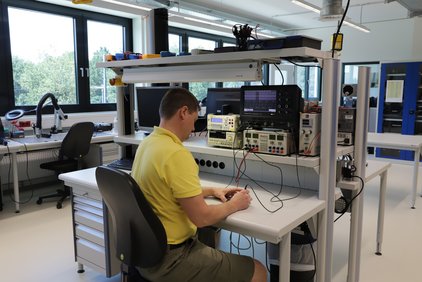Elektronic Workshop
Contact person: Christian Schoo
Especially in the field of robotics, the requirements for electronic assemblies, e.g. in terms of size, geometry or external conditions, are high. The equipment in the electronics laboratory makes it possible to produce assemblies in-house in a short time that are precisely adapted to the requirements in the respective projects. The electronics laboratory is equipped with devices for processing SMD components, which enable a high degree of miniaturization. The equipment includes, among other things, a stencil printer for applying solder paste, an SMD manual assembly station with microplacer, and a high-precision automatic assembly machine that also allows the production of complex assemblies in small batches. Furthermore, the assemblies are assembled, tested and integrated into the robotic systems in the electronics laboratory. In addition, various measuring devices are available for adjustment work and for repair purposes.
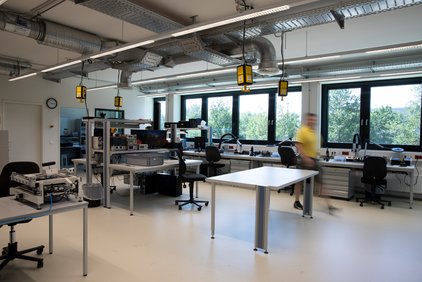
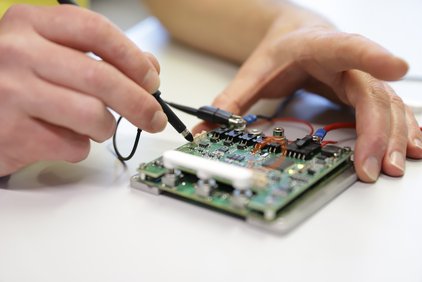
Pictures
Mechanical Workshop
Contact person: Daniel Pizzutilo
The Mechanical Workshop is used for the production of prototypes and small batch parts needed for the construction of robotic systems. In addition, purchased products and systems can be modified, adapted and assembled. For this purpose, the workshop contains a large selection of tools and extensive machinery for example two CNC milling machines, a waterjet cutter, various 3D printers featuring different printing processes, and conventional lathes and milling machines. In addition, a measuring station and a welding station are available to produce precision parts and components. The Mechanical Workshop houses an extensive warehouse of standard parts as well as semi-finished products such as high-strength aluminum grades, a wide variety of plastics and state-of-the-art lightweight materials. It is kept well stocked so that any needed work can be performed immediately.
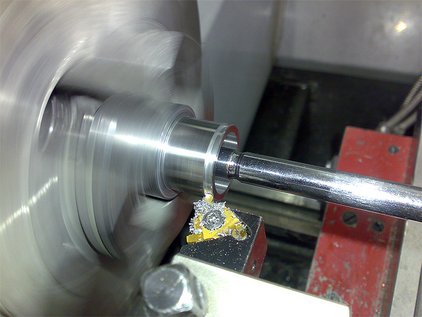
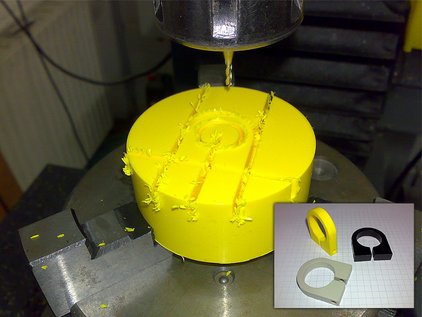
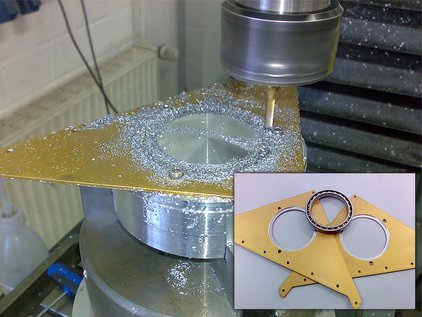
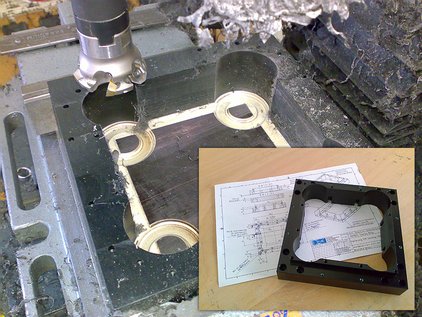
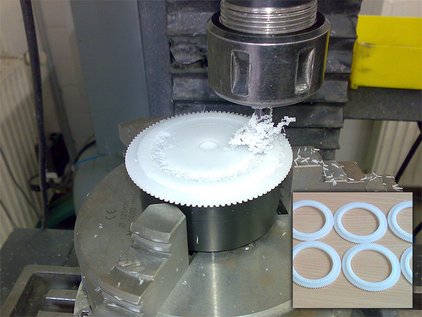
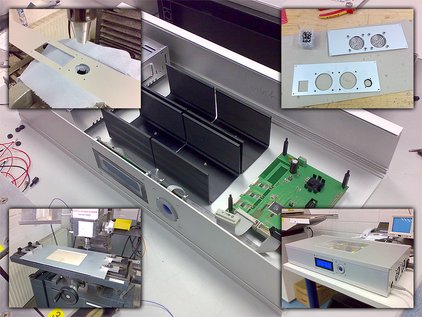
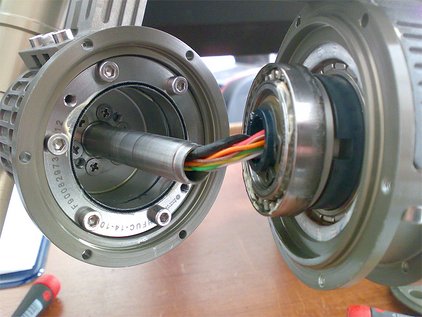
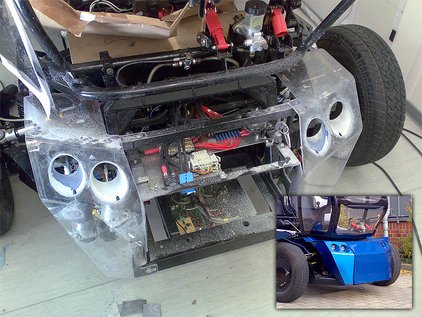
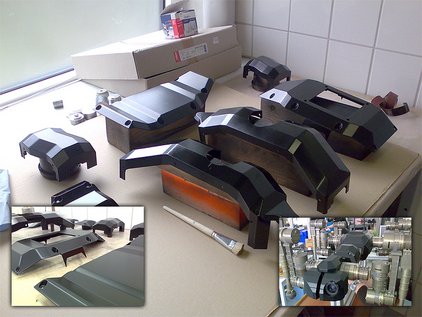
Pictures
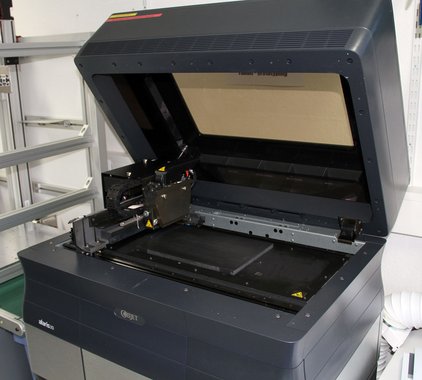
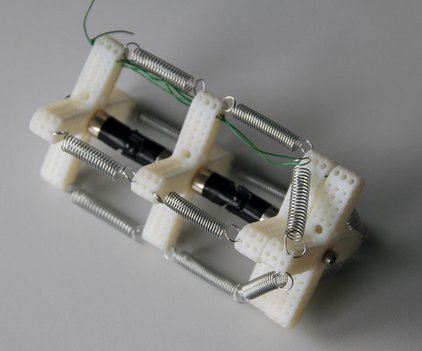
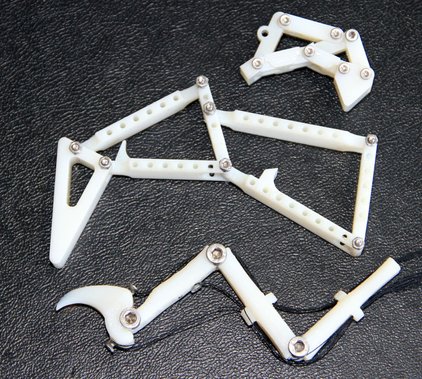
Rapid Prototyping Plotter
Contact person: Daniel Pizzutilo/ Roman Szczuka
Rapid Prototyping is a generative manufacturing process for the quick assembly of constructional elements from CAD Data. The printer uses the so-called “3D-Printing” process and is used for different purposes in the “Intelligent Structures for Mobile Robotic Systems” (iStruct) Project. The print head deposits a liquid plastic suspension layer by layer on a building table; UV-light hardens the construct to a solid.
Among others, mechanical demonstrators of spine, leg or foot concepts are made. Because of its precise print image, the printer is also used for sensor integration purposes. Generally, modern sensor elements are very small and have to be integrated very precisely into the surrounding structure. For this purpose, the conventional assembly of construction parts is combined with the Rapid Prototyping process. In comparison to conventional manufacturing, complex structures can thus be produced quite easily, and different approaches can be promptly realized for comparing, evaluating, and optimizing.
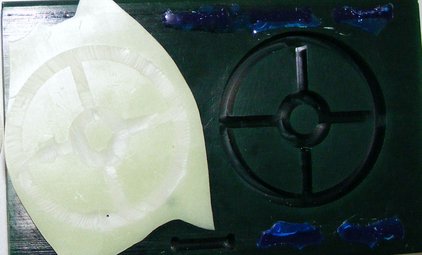
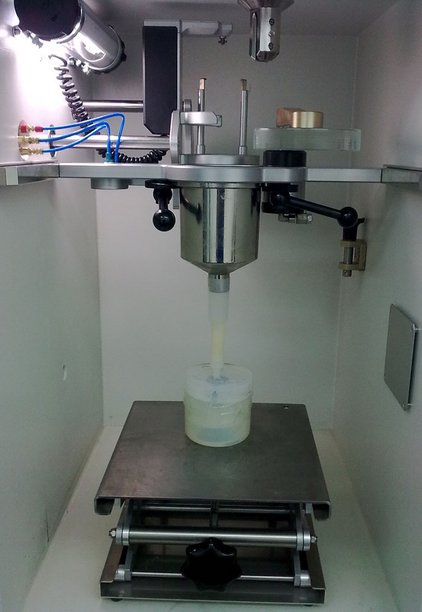
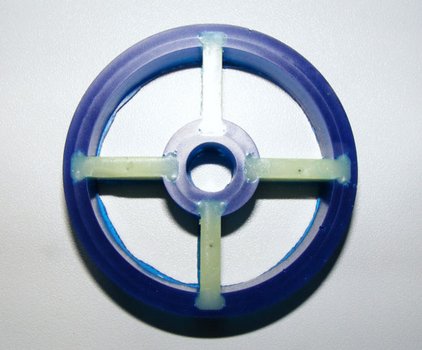
Vacuum-Casting-Machine
Contact person: Felix Bernhard
The Vacuum-Casting-Machine is employed for the project “Intelligent Mobility (iMoby). With this machine, polyurethane casting components get degassed, mixed, and poured into their mold. The mold is built out of silicone or machine wax, depending on their application. Through the use of the so-called “Shape Deposition Manufacturing” process, functional structures of different hardenings can be created. This way, a structure may be provided with local material properties, for example, for making a special part of the structure adaptive or compliant. Actors and sensors can also be integrated into those structures.
